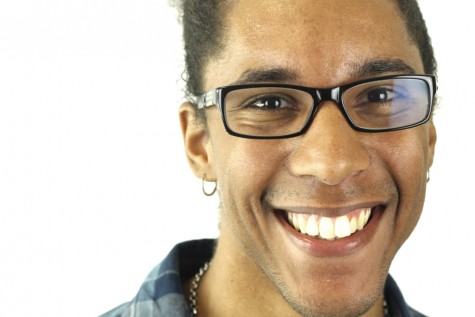Review: ‘Dear White People’ exceeds expectations
February 5, 2015
“Dear White People,” a satirical film written and directed by Justin Simien critically analyzes what it is like to be an African-American at a fictional Ivy League university, Winchester.
The film touches on many different issues facing Millennial African-Americans, not only enrolled at an Ivy League university, but also at many predominately white institutions nationally. Subjects such as a loss of identity, colorism and who can truly be considered an African-American are only a few of the endless obstacles plaguing the black students in this film many can relate to in real life.
The film opens up the story nicely with humor and sass, but also giving a quick overview of all inhabitants at the university. The residence halls, or “houses” as they are called are all segregated by race. Many of the houses having only whites with maybe one African-American student, to the house inhabited by all African-Americans—Armstrong/Parker.
Immediately there is a vast divide in the film between the many different types of African-Americans.
Colandrea “Coco” Connors, a dark-skinned girl wearing a long weave with bangs seems to reject her “blackness” by wanting to assimilate into the white culture. She refuses to even go by her birth name due to its stigma of being too ghetto, instead of opting for a shortened version “Coco.”
Coco is an interesting character in many ways because she plays on how a select few of African-American women see their black background as more of a hindrance. For example, she only wants to date white men and is looking for her Ryan Gosling instead of an Omari Hardwick. She is also asked by a fellow white student if her hair is “weaved,” because that’s something only black women wear apparently, which is not entirely true.
Many instances in the film show the issues many blacks face today. For example, Troy Fairbanks embodies the light-skinned successful smart ‘brotha’ who has his priorities together and just so happens to date a white woman. Coco even makes fun of Troy accurately accusing him of dating a white woman based off his demeanor in the film when they meet.
Another issue lightly touched on in the film is the aspect of an African-American being an exception from the rest, as one of the white characters in the film says that Troy is cute for a black boy. The film playfully makes light of an issue many blacks do face with a perception of being undesired by other ethnicities with the comment.
The plot of the film is a little buried, however, in the many different aspects related to the types of blacks in the film. The story is essentially about how the black culture on campus is ignored and sort of pushed to the corner, as well as how the students on campus have no racial filter with how they talk to their fellow ethnic counterparts.
The complexities of these issues featured in the movie are also reflective in how it is for current African-Americans in today’s society. It also ties in the issue of being a gay African-American with Tyler James Williams’ (Everybody Hates Chris) character, Lionel Higgins.
Higgins, whom doesn’t seem to quite fit in with any of the crowds at the school, is “outed” in the beginning of the film with a horrendous voicemail message, to which he spends much of the film trying to fit in. His biggest challenge is because he is a gay minority and is unsure of where he can fit in because often times within the black culture, it’s one issue to be black, but an entirely different subject being both gay and black.
Higgins also daydreams early on as he’s sitting on the steps about which world he can live in. He sees himself socializing with the other gay students, but doesn’t quite fit well for him, so he then thinks about what it would be like to hang with his fellow black students. That doesn’t work for him either because he doesn’t feel “black enough.”
The subject of African-Americans’ hair is a deep issue rooted within history, but in today’s society, it is common knowledge not to randomly touch a black person’s hair for it is seen as offensive. That said Higgins’ hair is fingered constantly because the girl digs her hands deep into his ‘fro playing with his hair.
Being “black enough” is a topic heavily discussed amongst other blacks, as to who can truly claim the culture. No such thing of being “black enough” even exists, but it’s something a lot of biracial children in America face. They question if they’re not black enough to hang with the other blacks, or not white enough to be with other whites.
The star of the film, Sam White, is the poster child for struggling with her “blackness” because she is biracial. Her mother is black while her father is white, which isn’t known until later on in the film, but is not suprising. White, in a sense, tries to overcompensate for her biracial identity with being a radical activist and the leader of the university’s Black Student Union.
Though she is very pro-black with her ideals and goals for her fellow African-Americans on campus, a lot of it is all a front because she is actually dating a white man and is in love with him, but hides that aspect of her life from her black friends.
Simien’s film “Dear White People,” is more than a satirical comedy, the core of the film really explains the many facets of being an African-American in the new decade. He brings in so many aspects about African-American, but also doesn’t leave out the issues whites may feel of their own identity becoming obsolete with such mixing of the races and culture blends.
Roberto Hodge is a senior journalism and Africana studies major.
He can be reached at 581-2812 or [email protected].






































